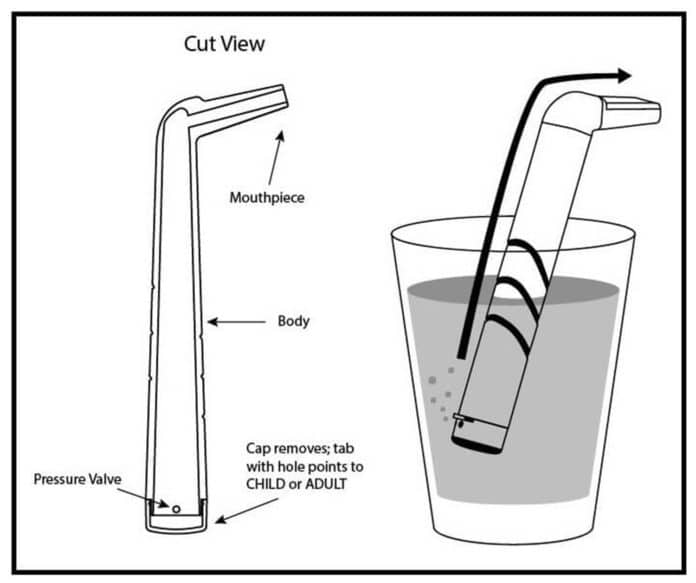Hiccups are occasionally annoying. There are lots of suggestions for how to get rid of hiccups, and maybe you’ve even tried a few.
Now, scientists from The University of Texas Health Science Center at San Antonio (UT Health San Antonio) and colleagues worldwide have developed a new science-based intervention for hiccups. They dubbed this intervention as ‘forced inspiratory suction and swallow tool’ or FISST.
FISST is a rigid drinking tube with an inlet valve that requires forceful suction to draw water from a cup into the mouth. The suction and swallow process stimulates two nerves, the phrenic and vagus nerves, to relieve hiccups.
The part to blame for your hiccups is the diaphragm, a dome-shaped muscle at the bottom of your chest. Forceful suction induces the diaphragm to contract. The suction and swallow also prompt the epiglottis to close. This ends the hiccup spasms.
In this cross-sectional study, FISST was offered worldwide to volunteers through an online Kickstarter campaign in 2020 and followed up for four months prospectively. Scientists found that FISST stopped hiccups in nearly 92% of cases. 90.8% of participants affirmatively answered questions about whether they found the tool easy to use.
Ali Seifi, MD, associate professor of neurosurgery in UT Health San Antonio’s Joe R. and Teresa Lozano Long School of Medicine, said, “On a different measure, subjective effectiveness, 183 of 203 participants (90.1%) indicated that FIRST was effective when they used it. Fewer participants answered this question, possibly because it was last in the survey.”
“Future directions include conducting a double-blind clinical trial in Europe and America that gives FISST to one group of trial enrollees and a non-functional, sham device to another group. The challenge is developing something that resembles FISST but doesn’t work.”
Journal Reference:
- James Alvarez, Jane Margaret Anderson, Patrick Larry Snyder, Alireza Mirahmadizadeh, Daniel Agustin Godoy, Mark Fox, Ali Seifi. Evaluation of the Forced Inspiratory Suction and Swallow Tool to Stop Hiccups. JAMA Network Open, 2021; 4 (6): e2113933 DOI: 10.1001/jamanetworkopen.2021.13933
